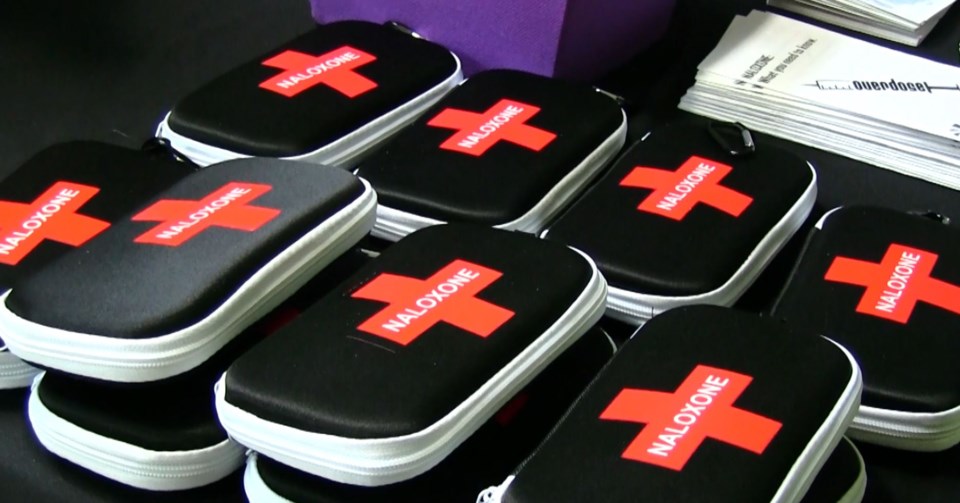The local ambulance service has found a new way to respond to the opioid crisis.
Cochrane District Emergency Medical Services (EMS) staff are now carrying naloxone kits to distribute throughout the district. According to commander of quality assurance and professional development Seamus Murphy, they're the first ambulance service in Ontario approved to do so.
The Ministry of Health approved the program in mid-July. As soon as they got permission, Murphy said they went full-steam ahead and created an agreement with the Porcupine Health Unit, which is supplying the kits being distributed.
Getting approval for the initiative took about two years.
When Murphy was reading through ambulance call documentation, he noted they were getting called out because people either ran out of naloxone, or when paramedics were on scene there wasn't any naloxone to leave behind.
“That was the initial intent was to replenish the exhausted kits so that they have them there in case they needed them again,” he said.
After talking with members of the Timmins and Area Drug Strategy, the scope expanded.
“If our crew goes to….the coffee shop and they’re standing waiting in line and somebody came up to the crew member and said ‘I hear you have naloxone kits, can I get one’,” he said the answer is absolutely. The paramedic would also ask if the person knows how to use it, and provide education if needed.
In August, he said at least 30 kits were handed out.
"It’s still a new process for the staff because our primary concern is for patient care. Depending on the presentation of the patient or the patient condition we may have to transport right away and not have the opportunity to leave a naloxone kit," he explained.
For. most overdose calls, Murphy said an on-duty commander also attends, however. If they're not required to go with the patient, they can stay behind to distribute the naloxone kits and give education.
“One of the things that I want to see is that we distribute them to those that need it, and a life saved today may be a life changed tomorrow,” he said. “To be able to give these kits and then have people get revived and continue to live, that to me is an achievement in itself.”
This year, the health unit has issued alerts about the increased rate of suspected opioid overdoses in the Cochrane District.
In June, Timmins Police issued a safety advisory after three people died of suspected overdoses in 24 hours. In total during that time, eight people required first aid from officers at the scene of calls, with paramedics reviving five people. A fourth overdose death was reported within days of the advisory being issued.
In 2019, Murphy said there were 141 opiate overdoses and seven fatalities. So far in 2020, there have been 145 overdoses and 14 fatalities.
Naloxone can temporarily reverse the effects of an opiate overdose.
Having naloxone available is extremely imortant, said Murphy.
Prior to COVID-19, he said it was difficult to have people do CPR and mouth-to-mouth.
“Now that COVID’s around, they definitely don’t want to do it, they don’t want to touch anybody," he said, explaining the kit includes a one-way mask, rubber gloves and naloxone.
"What this does is it blocks the opiate receptors in the body, but again it’s only for a limited time. That’s one thing that people have to try and remember, is that yes you can give naloxone and it’s going to work and it’s going to wake somebody up but it’s only for anywhere from 30 minutes to 90 minutes. It all depends on how much they took. And there’s also been times that the naloxone didn’t work because there’s other drugs that were tainted inside of the heroine or in their opiate.
"Naloxone should be with every user, every person on the street. If you’re out and you’re around people that are drug users, and not necessarily opiates because a lot of the recreational drugs that people are taking are being presently laced with fentanyl. They may think they’re taking their usual drug, but they go unresponsive. So the naloxone kit is encouraged to be used.”
Murphy said they'll continue running the program as long as there is funding, or the opiate crisis ends.
Free naloxone kits are also available at the Porcupine Health Unit offices, and many pharmacies. A list of where to get one is available here.



